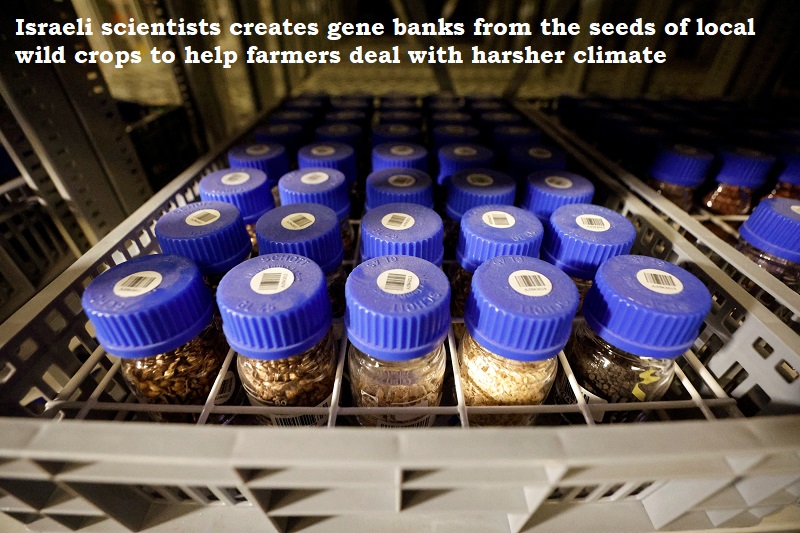
Israeli scientists are developing a gene bank from the seeds of local wild crops, some of which have survived for thousands of years since agriculture’s inception. The gene bank could assist farmers in dealing with harsher climates in the coming decades, as they hope DNA will be important in future crops.
Scientists have collected seeds from a variety of recently discovered plants, including a variety of water mints, which will be frozen and stored at the Israel Plant Gene Bank at the Volcani Institute, the country’s agricultural research and development centre.
They are travelling across the country in search of wheat, barley, and other wild crops.
The goal is to preserve their genetic makeup and study their DNA before they are lost due to expanding deserts and urbanisation as the climate warms. Scientists hope to use the resilient characteristics of these wild plants to genetically modify farmed crops to make them more resistant to drought and disease.
‘The plants here are very unique. They are the ancestors of many of the cultivated plants used today,’ botanist Alon Singer said in an interview.

Post Your Comments